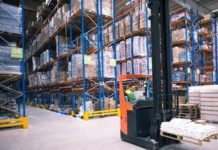As part of its endeavor to promote sustainable packaging and zero-waste, India’s leading eCommerce market place, Flipkart, has been able to reduce plastic packaging in its own supply chain by about 50%.
Flipkart said it has now started phasing out plastic packaging from its own supply chain in Maharashtra through usage of paper-based packaging starting 1 May, 2020. The company has been driving several initiatives as it pursues sustainable growth, which includes the introduction of eco-friendly paper shreds, replacing poly pouches with recycled paper bags, replacing bubble wraps, and airbags with carton waste shredded material and 2-ply roll, to name a few.
Flipkart said it is actively working with all policymakers, including state governments across the country and other ecosystem stakeholders to understand how it can provide a conducive and feasible transition path to lakhs of its seller partners to gradually adopt sustainable packaging alternatives which could be affordable, scalable and widely available to them.
Flipkart works with over 200,000 local sellers, mostly MSMEs across the country, many of whom also ship customer orders directly and make their own packaging decisions.
“Flipkart is strongly committed to environmental sustainability and is working actively with various partners on long-term sustainability initiatives, helping drive ecosystem awareness. We are pleased with the progress made in our own supply chain to introduce and explore different packaging concepts to have an impact now and in the future,” Rajneesh Kumar, chief corporate affairs officer, Flipkart Group, said.
IndiFoodBev — authentic, impactful and influential
An English-language food and beverage processing and packaging industry B2B platform in print and web, IndiFoodBev is in its third year of publication. It is said that the Indian food and beverage industries represent approximately US$ 900 billion in revenues which implies more than 20% of the country’s GDP. Eliminating the wastage on the farmside can help to deliver more protein to a higher number of the population apart from generating sizable exports. The savings in soil, seeds, water, fertilizer, energy and ultimately food and nutrition could be the most immense contribution that country is poised to make to the moderation of climate change.
To improve your marketing and grow sales to the food and beverage processing and packaging industry, talk to us. Our research and consulting company IppStar [www.ippstar.org] can assess your potential and addressable markets in light of the competition. We can discuss marketing, communication, and sales strategies for market entry and growth.
Suppliers and service providers with a strategy and budget for targeted marketing can discuss using our hybrid print, web, video, and social media channels to create brand recognition linked to market relevance. Our technical writers are ready to meet you and your customers for content.
The second largest producer of fruit and vegetables in the world is continuously expanding processing capacities and delivery systems with appropriate innovative technologies. We cover product and consumer trends, nutrition, processing, research, equipment and packaging from farm to thali. Get our 2025 media kit and recalibrate your role in this dynamic market. Enhance your visibility and relevance to existing markets and turn potential customers into conversations. Ask for a sample copy of our bi-monthly in print or our weekly IndiFoodBev eZine each Wednesday.
For editorial info@ippgroup.in — for advertisement ads1@ippgroup.in and for subscriptions subscription@ippgroup.in
Naresh Khanna – 10 February 2025
Subscribe Now












